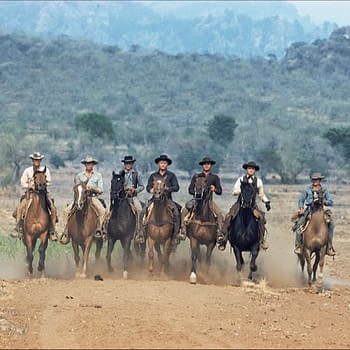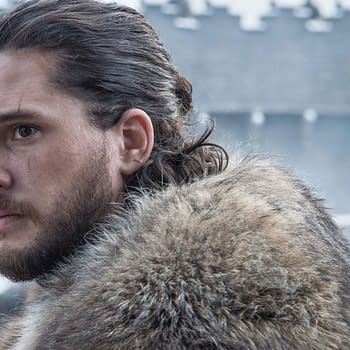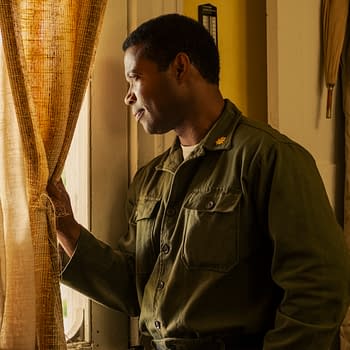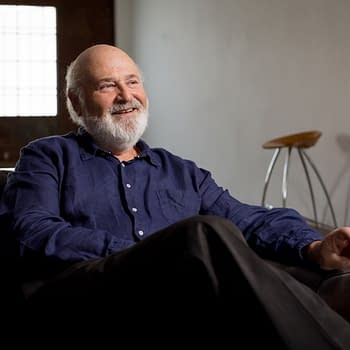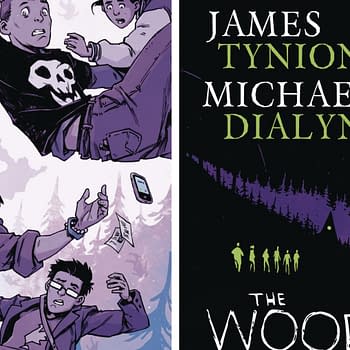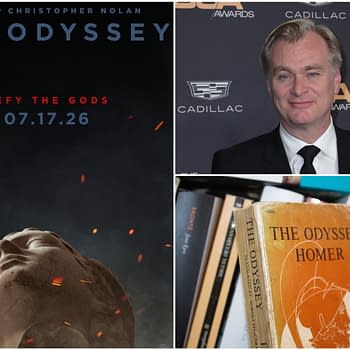Posted in: Movies | Tagged: Alan Cumming, Richard Ledes, V13
V13 Director Richard Ledes on Pre-WWI Era Film, Alan Cumming & More
Director/Writer Richard Ledes (Adieu, Lacan) spoke to Bleeding Cool about his latest World War I era historical drama V13, influences & more.
Article Summary
- Richard Ledes adapts Alain-Didier Weill's pre-WWI play "V13" for the screen with a unique artistic vision.
- Alan Cumming stars as Sigmund Freud, bringing depth and nuance to the iconic psychologist's role.
- "V13" explores complex themes, including art, psychoanalysis, and early 20th-century socio-political tensions.
- Casting was key, with Ledes drawing on New York's rich talent pool for this historical drama.
Director and writer Richard Ledes has always been meticulous about the projects he chooses with his films the World War II-themed A Hole in One (2004), crime thriller The Caller (2008), and historical film Adieu, Lacan (2022). His latest is an adaptation of an Alain-Didier Weill (who co-wrote The Caller) play, V13. Taking place in 1913 Vienna on the brink of World War I, the film presents two young friends: Hugo (Liam Aiken), a musician from a privileged family engaging in psychoanalysis with Sigmund Freud (Alan Cumming); and Adolf (Samuel H. Levine), a struggling artist obsessed with vegetarianism who falls in love with German nationalism. Ledes spoke to Bleeding Cool about what drove him to adapt Weill's play to screen, Cumming's portrayal of the famous psychologist, and his casting process.
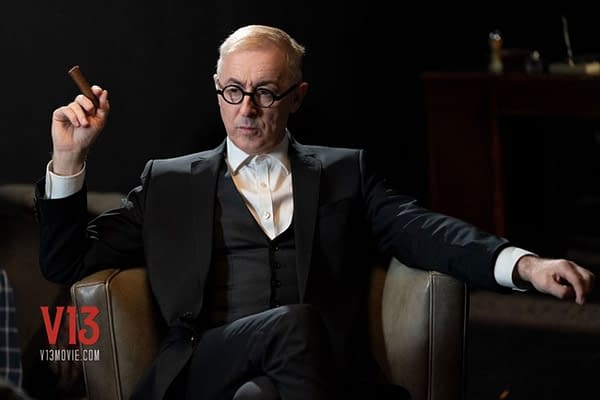
V13 Director/Writer Richard Ledes on Adapting Alain-Didier Weill's Pre-WWI Play to Screen
Bleeding Cool: What intrigued you about 'V13' and adapting Alain-Didier Weill's play to the screen?
I had done another film with Alain. He was a French psychoanalyst, a Lacanian psychoanalyst, and I had been introduced to him by a friend after a talk he gave, and it was at a part of a Lacanian association that had all these brilliant people come and talk. Most of them I thought were brilliant, but I didn't have much to say to them. Alain was interested in music, jazz, art, and theater, but not as much in cinema. He and I immediately struck up a friendship. I felt an immediate affinity with him, someone who understood where I was coming from as an artist and as a fellow artist.
[Alain] had only written one unfinished screenplay, and it was for a French actor he met and who had been interested and then started to do it; that famous French actor, [Jean-Louis] Trintignant, had lost interest or for one reason or another never got done. I'd picked it up, finished it, and made it into a film. It won a prize at Tribeca, and it did well. It's called 'The Caller' (2008). It had Elliot Gould, Frank Langella, and Laura Herring, and it did well. It was a great experience.
[Alain] enjoyed it, and I saw a stage reading of this play ['V13'], and it intrigued me. I don't know why. In the end, one of the things that stayed through to the end was the representation of representation, or that in it, there's a play within a play, which becomes a play within a film. Of course, as you know, I push that even further by the way I treat Freud's office. That intrigued me and gave me access to the material.
One of the things is it touches on the Holocaust, and one thing about the subject of the Holocaust is you can see various filmmakers throughout time dealing with what Lacan would have called, "The Real," which is to say something which fondly escapes representation, and so you see various filmmakers finding various ways of leaving it outside the frame. For example, in 'The Zone of Interest' by Jonathan Glazner, where he is filming the commandant's home life, and on the other side of the wall is Auschwitz.
That's a way of leaving it outside the frame, and Claude Lanzmann's 'Shoah' (1985) does it in another way. I'm giving myself a lot more credit for having all this deep thought in the beginning, but something intrigued me about the possibility of this element of the play, given my other work in a film, and that served as part of the whole thing.
What it went into casting, was Alan always penciled in from the get-go for Sigmund Freud? Did you consider having the actors perform with the accents?
Alan and I have a mutual friend. I always thought he would be great as Freud for a lot of different reasons, and I was thrilled when he accepted the role. He stayed with it for many years as I put it together. It went through many permutations. For a while, I had producers in Romania, Austria, Germany, and the United States. I was planning to shoot it in Europe, but then, I chose to shoot it in a way that I had always thought of doing possibly from the beginning, which was to shoot it in New York. Did I ever think of shooting it with accents? Yeah, it crossed my mind, but not for long.
What about the other roles? Was it an open audition process, or did you already have people in mind?
I quickly came to have other people in mind as I went through casting. These were actors I've worked with the same casting directors for many years, Ashley Ingram and Billy Hopkins, two well-known and distinguished in their field. Casting directors play an important role frequently in the filmmaking process especially working in New York, where you have a deep bench of actors, which is one of the great things about New York.
At the same time, you need someone to help you curate available actors and possibilities for the roles. These actors were the ones I looked at their work, and then we had a discussion. The discussion is very important with the key cast and crew members because I'm going to spend little time with them, and it's going to be hectic and under extreme pressure. The first time I met them, this is something [director Federico] Fellini would do with actors: you meet them and have a conversation while you're still in relative tranquility and can hear each other. You learn something about the actor if you're going to cast them, or I always hope I do or feel I do, and that serves as the foundation for everything that comes afterward.
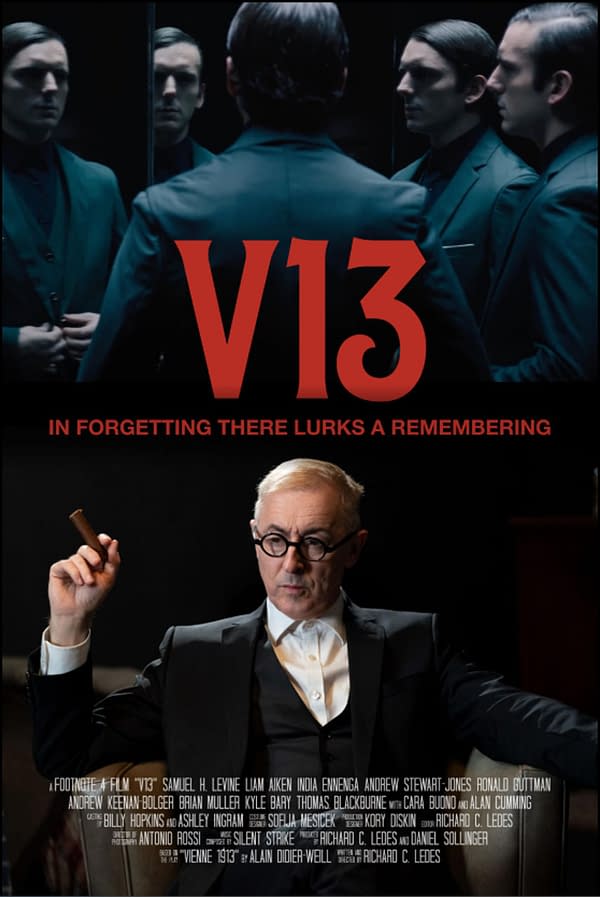
V13, which also stars Ross Alden, Carol Axel, Kyle Bary, Ehad Berisha, Thomas Blackburne, and Cara Buono, premieres April 3rd at the IFC Center in New York and will be available to rent or purchase on Venmo on April 4th, and releases on digital platforms on May 13th on Apple TV, Prime Video, Google Play, and Fandango at Home.






